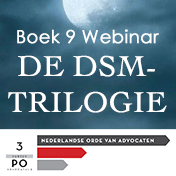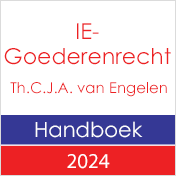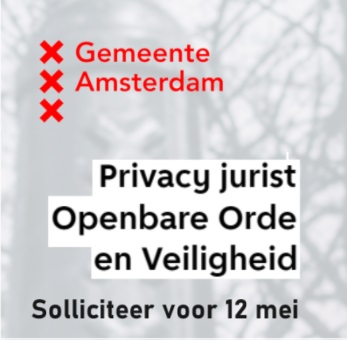
B9 10353. Sil Kingma, Boekel De Nerée: Bans on internet sales. Little room for manoeuvre in selective distribution agreements, (ECJ, October 13, 2011, case C-439/09, Pierre Fabre Dermo-Cosmétique SAS against Président de l'Autorité de la Concurrence).
On 13 October 2011, the European Court of Justice (ECJ) ruled that a clause in a selective distribution contract that effectively bans the distributors of a company from selling its products online constitutes an infringement of competition law, unless that clause is objectively justified or eligible for an individual exemption. The ECJ stated that such a clause cannot benefit from the block exemption for vertical agreements.
Selective distribution. In a selective distribution system the supplier sells its goods only to distributors selected on the basis of specified criteria and where these distributors undertake not to sell such goods or services to unauthorised distributors. Most suppliers use a selective distribution system in order to protect and enhance the brand of their products. In earlier judgments, the ECJ ruled that selective distribution systems affect competition in the common market if they have no legitimate purpose. However, a selective distribution system is deemed to have no anti-competitive effects provided that resellers are chosen on the basis of objective and qualitative criteria and the characteristics of the products necessitate such a distribution system.
A possible exemption? When a clause or agreement is deemed anti-competitive, it may still be eligible for exemption. The block exemption provides a safe harbour for certain types of vertical agreements, as long as certain market share thresholds are not surpassed by both supplier and distributor and provided that certain types of vertical competitive restraints are avoided. Individual exemptions may apply where an anti-competitive agreement or clause improves the production or distribution of goods or promotes technical or economic progress, while allowing consumers a fair share of the benefit. In general it is considered to be fairly difficult for anti-competitive practices to pass this hurdle.
The main dispute. Pierre Fabré Dermo-Cosmetique (PFDC) manufactures and markets cosmetics and personal care products and has several subsidiaries, including the Klorane, Ducray, Galenic and Avene laboratories, whose cosmetic and personal care products are sold under those brands. For the sale of their products on both the French and European market, PFDC has created a selective distribution system. Even though these products are not classified as medicines, the distribution contracts for these products only allow sales in a physical space and in the presence of a qualified pharmacist, and therefore de facto bans all internet sales.
On 29 October 2008 the French Competition Authority decided that PFDC’s ban on all internet sales was contrary to competition law and thus prohibited. PFDC was ordered to remove the restrictive clauses from their distribution contracts. PFDC challenged the decision before the Paris Court of Appeals and claimed that the presence of a pharmacist is necessary to guarantee that the customer can at all times request and obtain advice from a specialist. It also argued that the Competition Authority wrongly denied PFDC the benefit of the block exemption or an individual exemption. In 2009, the Paris Court of Appeals asked the ECJ for a preliminary ruling on the arguments put forward by PFDC.
The ruling of the European Court of Justice. On 13 October 2011, the Court rendered its judgement. The ECJ recalls that, for the purposes of assessing whether the contractual clause at issue involves a restriction of competition ‘by object’, regard must be shown to the content of the clause, the objectives it seeks to attain and the economic and legal context of which it forms part.
The ECJ reiterated its position regarding selective distribution and came to the conclusion that a ban on internet sales, whether expressly stated or the consequence of the criteria set for its resellers, restricts competition, in the absence of an objective justification. It went on to look at the justifications PFDC put forward to legitimate the impossibility of internet sales through PFDC’s distribution channels. For the products concerned the ECJ did not accept the necessity of a qualified pharmacist to be present at the sale. This was in line with earlier judgments regarding the sale of non-prescription medicines and contact lenses. Novel in this judgement was the ECJ’s rejection of the aim of maintaining a prestigious image as an objective justification for its restriction regarding on internet sales.
In regard to the block exemption, the ECJ stated that the block exemption is not applicable to clauses which ban internet sales. Even though the practice of prohibiting internet selling is not expressly referred to as a restriction that removes the benefit of the block exemption, the nature of the practice is equivalent to a ban on active and passive sales, which is considered as such.
The ECJ did not examine whether PFDC’s distribution system could be eligible for an individual exemption. It is for the Paris Court of Appeals to examine whether the conditions thereto are met.
Conclusion. Contractual clauses in selective distribution contracts, resulting in a ban on internet sales, are prohibited, unless such a ban is objectively justified or eligible for an individual exemption. The block exemption does not apply to agreements containing such clauses, since this results in a restriction of active and passive sales to end users.
Sil Kingma
IP, IT and privacy lawyer
[email protected]
Merel Hees
IP, IT and privacy lawyer
merel.hees @boekeldeneree.com
Marc Kuijper
EU & Competition
[email protected]



























































